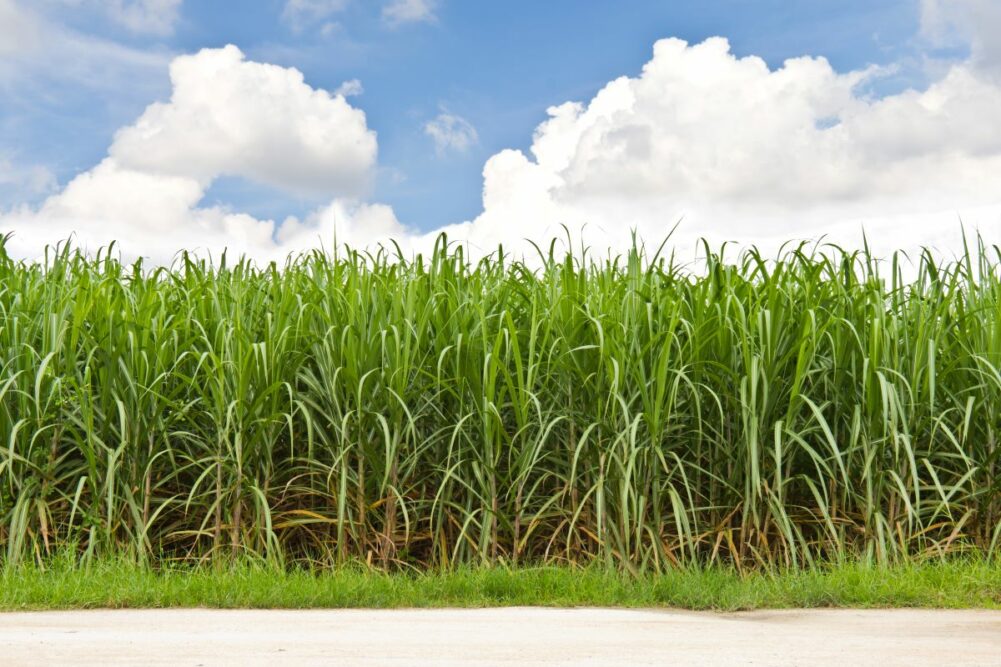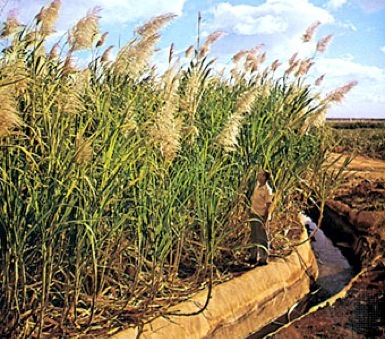Why Walking Cane Sugar Processing Chemicals Are Crucial for Modern Sugar Refining
The function of walking cane sugar handling chemicals in modern sugar refining can not be overstated, as they are essential to improving both the performance of removal and the general high quality of the last item. Agents such as phosphoric acid and certain flocculants are utilized to get rid of contaminations, resulting in sugar that not just fulfills customer expectations yet additionally adheres to industry requirements.
Duty of Handling Chemicals
The efficacy of walking stick sugar processing hinges considerably on the tactical application of processing chemicals. These chemicals play a pivotal duty in boosting the efficiency and high quality of sugar removal and refining. From the initial stages of juice extraction to the final filtration actions, handling chemicals assist in various important operations.
In the extraction stage, chemicals such as phosphoric acid and calcium hydroxide are used to maximize the explanation procedure, helping to eliminate contaminations and put on hold solids from the walking cane juice. This not just enhances the yield yet also ensures the quality of the last item. Furthermore, agents like flocculants help in the fast settling of impurities, therefore enhancing the overall procedure.
Turned on carbon and ion exchange resins offer to eliminate shade and odor, guaranteeing that the polished sugar satisfies consumer high quality standards. Thus, the thorough option and application of these chemicals are vital for accomplishing optimal outcomes in walking cane sugar handling.
Trick Sorts Of Chemicals
Walking stick sugar processing depends on a range of key chemicals that assist in each stage of production. These chemicals play important duties in clearing up, bleaching, and cleansing the sugar extracted from walking stick.
One primary category of chemicals includes flocculants, such as polyacrylamide, which aid in the clarification process by promoting the aggregation and settling of pollutants. Additionally, calcium hydroxide is typically utilized to reduce the effects of level of acidity and aid in the removal of non-sugar components.
Bleaching representatives, such as turned on carbon and sulfur dioxide, are made use of to decolorize the syrup, causing a more clear end product. These chemicals assist get rid of color compounds that may affect the sugar's appearance and marketability.
Additionally, phosphoric acid offers as a pH regulator during the processing phases, making sure optimum conditions for the enzymatic tasks involved in sugar extraction and filtration.
Various other important agents consist of edta (ethylenediaminetetraacetic acid), which chelates steel ions that could catalyze unfavorable responses, and salt hydroxide, which assists in pH control throughout the refining procedure. Jointly, these chemicals boost effectiveness and guarantee a high-grade walking stick sugar product.
Advantages for Sugar High Quality
Frequently forgotten, using specific handling chemicals dramatically improves the overall top quality of walking stick sugar. These chemicals play a pivotal duty in refining procedures, making sure that the end product meets rigorous market requirements for purity and preference.

Furthermore, processing chemicals assist in accomplishing a constant granulation and texture, which are vital for consumer acceptance. By controlling the crystallization process, these chemicals ensure that the sugar crystals create evenly, bring about an extra enticing item that liquifies well in numerous applications.
In addition, the usage of these chemicals can boost the service life of walking stick sugar by lessening dampness absorption and microbial development. On the whole, the strategic application of processing chemicals is vital for supplying high-grade walking stick sugar that meets consumer assumptions and industry needs.
Ecological Impact Factors To Consider

Moreover, the energy-intensive nature of sugar refining, worsened by chemical use, frequently causes increased carbon discharges. This adds to environment adjustment and raises worries concerning the sustainability of present refining practices. In addition, the Resources sourcing of these chemicals might involve practices that endanger biodiversity, such as monoculture farming, which lowers the resilience of farming communities.

To mitigate these effects, sugar refiners are increasingly checking out lasting choices and embracing best methods that reduce chemical use. Implementing strenuous ecological monitoring systems can help guarantee that the refining procedure lines up with ecological criteria and advertises biodiversity. Eventually, a balanced approach that focuses on both sugar top quality and ecological stewardship is crucial for the lasting stability of the sugar sector.
Future Patterns in Refining
As the sugar industry grapples with the environmental challenges associated with traditional refining approaches, innovative methods are arising to boost both effectiveness and sustainability. One considerable trend is the adoption of eco-friendly chemistry concepts, which prioritize making use of non-toxic, eco-friendly processing chemicals. This change not only decreases environmental impact however also addresses customer demand for cleaner production approaches.
An additional appealing advancement is the application of sophisticated filtering technologies, such as membrane separation and adsorption procedures. These techniques improve the clarity and high quality of the sugar while minimizing the quantity of wastewater produced throughout refining. Additionally, the combination of electronic technologies, including IoT and AI, is changing functional efficiency by allowing real-time surveillance and predictive maintenance, hence reducing source waste.
Furthermore, using spin-offs from sugar refining, such as bagasse and molasses, is obtaining traction. These materials can be exchanged biofuels or value-added items, adding to a round economy within the market. Jointly, these fads signal a shift in the direction of more lasting methods that not only enhance functional efficiency however likewise align with global sustainability objectives, ensuring the future stability of sugar refining.
Final Thought
Walking cane sugar processing chemicals are essential in modern-day sugar refining, dramatically enhancing the efficiency and quality of sugar removal. The calculated use these chemicals not just boosts the purity and flavor of the end product yet additionally guarantees constant formation and structure. As the market significantly focuses on sustainability, the adoption of environmentally-friendly processing agents is most likely to form future patterns in this hyperlink refining, eventually bring about higher quality items and extended life span for consumers.

Inevitably, a balanced approach that focuses on both sugar high quality and environmental stewardship is vital for the long-lasting stability of the sugar market.
Cane sugar processing chemicals are essential in contemporary sugar refining, significantly improving the efficiency and quality of sugar removal.